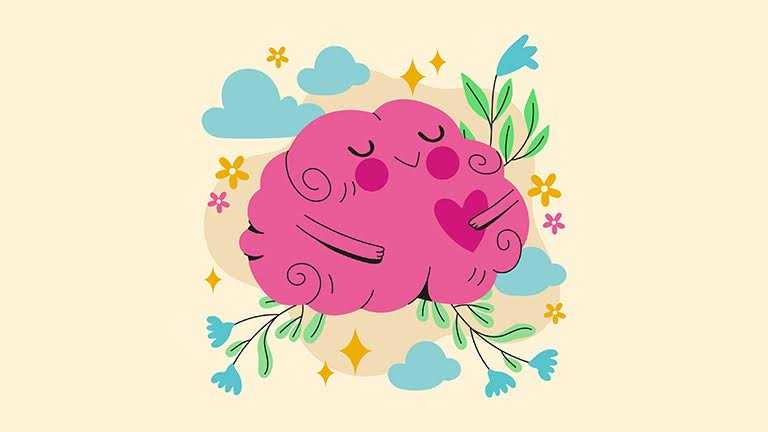
Transactional Analysis, a psychodynamic approach first developed by Eric Berne in 1961, is based on the premise that we all have three ego states: Parent, Child, and Adult. These ego states, which have both a positive and negative aspect to them, influence our behaviors and interactions with the people around us. Transactional Analysis approach is great for those who want to free themselves from conditioning of limited beliefs and make behavioural changes.
Ego states
The Parent Ego State represents the internalized voices of authority figures and primary caregivers, embodying both the spoken and unspoken beliefs, attitudes, and behaviours acquired from these influential individuals. It becomes apparent when individuals express themselves using phrases like “should” and “ought.”
The Parent Ego State can be further categorized into the Nurturing Parent Ego State, which shows care, support, and compassion, and the Controlled Parent Ego State, which exhibits criticism and judgement.
For example, as children if we are allowed to express our emotions and given support when we need it, we may grow up to become comfortable with expressing our emotions. However, if we are regularly faced with comments like ‘don’t be so emotional’ we might learn to become too rigid or consider ourselves weak when we feel emotions.
The Adult Ego State allows the individual to stay in the present and is characterized by rational objectivity and problem-solving. However, as the Adult Ego State deals with feelings, behaviours, and emotions in the present, an Adult Ego State devoid of compassion and too much rigidity may prove to be unhelpful.
For example, if someone asked, ‘Did you lose your car keys?’, the person responding from the Adult Ego State may respond with, ‘Yes. Could you help me look for it, please?’ or something to that effect. However, if a person is in their Child Ego State, they may interpret this question as criticism and may feel blamed in the situation.
The Child Ego State represents the feeling, emotions, and behaviors of their childhood. An individual may choose to stay in their Free Child and act with spontaneity and creativity or their Adapted or Rebel Ego State which may choose to comply or act in rebellion.
Understandings and misunderstandings
Transactional Analysis implies that all human interactions are transactions between the ego states. Complementary transactions occur when interactions align with compatible ego states, fostering understanding. However, when transactions occur between non-compatible ego states, misunderstandings and miscommunication can arise.
When two people interact with each they could have either complementary or crossed transactions. In complementary transactions, people feel seen and heard leading to a positive experience. For example, if one person says, ‘There has just been too much travel recently’ and the other responds with ‘I understand. You have been working hard; I hope you are looking after yourself”. But in unhealthy or crossed transactions, people feel unseen and unheard due to a breakdown in communication. For example, if one person asks, ‘Have you seen my keys?’ and another responds with ‘Why can’t you put things away when you get home?’

Life scripts and games
Another concept in Transactional Analysis is that of life scripts and games. Life scripts are influenced by innate predispositions, early life experiences and messages received from primary caregivers. This script then decides how our lives will unfoldwhich becomes evident through the various games we participate in. Games are specific series of transactions that have an ulterior motive and happen outside of one’s awareness.
Personal development and growth
As a humanistic approach, Transactional Analysis is rooted in the belief that every individual is constantly striving for personal development and growth. Three core principles reflect this philosophy:
“I’m OK/You’re OK”: This powerful principle emphasizes that every person, including ourselves, deserves compassion and has value. Early life experiences may shape different life positions, such as “I’m OK/You’re not OK,” “I’m not OK/You’re not OK,” or “I’m not OK/You’re OK.”
Everyone can think: This principle recognizes that while life experiences may be beyond our control, how we react to them depends on our thinking. Thus, every individual with a functioning brain has the capacity to think for themselves and is responsible for the life they choose.
Change is possible: The third core principle emphasizes the potential for change and growth. By focusing on personal growth and development, we can challenge our life scripts. For life scripts are formed in childhood because of a child’s best available options at the time; as adults, we can use our rationality and courage to engage with life situations differently.
Delving into our feelings and emotions, at any given point, brings self-awareness to our interactions in various life events. I encourage you to look back and explore how you might have responded if you were free from unhelpful beliefs and feelings.
Interested in learning more about Transactional Analysis as a process to bring about a change in your life? You may wish to read “I’m OK – You’re OK” and “Games People Play” or get in touch to explore further.
Photo Credits:
First image: Freepik
Second image: Istock pc: Peopleimages
References
Meagher, J. (1981). Identification of ego states in transactional analysis as a function of intelligence, professional training, and psychodynamic factors. Transaction Analysis Journal, 11(3), 260-269. https://doi.org/10.1177/036215378101100315
Schlegel, L. (2017). What is transactional analysis? Transaction Analysis Journal, 28(4), 269-287. https://doi.org/10.1177/036215379802800402
Vos, J., & Van Rijn, B. (2021). The evidence-based conceptual model of transactional analysis: A focused review of the research literature. Transaction Analysis Journal, 51(2), 160-201. https://doi.org/10.1080/03621537.2021.1904364

Ruchi Bhave
About the author
Ruchi Bhave is the founder of ‘The Mind Talk’. She is studying psychotherapy in Transactional Analysis after getting a diploma in Transactional Analysis. She recently got an MSc. In Psychology (conversion) to fulfill her longtime dream of working in the mental health industry. Currently, she is working toward getting her ICF accreditation to work as a coach.
Recently Added
Parental mental health plays a monumental role in a child’s social, emotional, behavioural and psychological development. Parents and caregivers are central to …
Generation Z, popularly known as Gen-Z, is the class of individuals born between 1996 and 2010. These individuals were born directly into …
Adaptogens are a class of natural herbs, roots, and mushrooms that assist the body in adapting to stressors in the environment. These …




